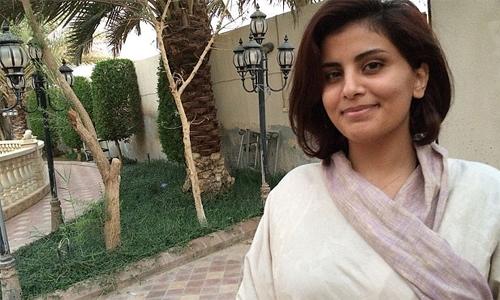Meet Saudi Arabia's first women election candidates
Their election leaflets cannot contain photographs, and they are not allowed to address men directly at campaign meetings.
But in a breakthrough moment for Saudi Arabia, the names of first women to nominate themselves as election candidates have been published.
The elections for local councils next month are the third in the nation’s modern history, but the first in which women will be allowed to both vote and stand, under a decree by the late King Abdullah.
Their duties should they win will be the mundane tasks of councils everywhere, such as supervising road maintenance. But the opportunity has been seized by some of the country’s most prominent women’s rights activists, as well by others who see themselves as apolitical but wanting to improve their local community.
More than 1,000 women have nominated themselves across the country, far more than many expected.
“I’m not excited by the idea of winning,” said Loujain al-Hathloul, who earlier this year was released from 73 days in prison after taking part in the campaign to allow women to drive. Now she is Candidate Number 1 for Riyadh District 5. “I’m focussed on increasing the number of women who stand in elections.”
King Abdullah, who died at the age of 91 in January, won a reputation in his later years for increasing opportunities for women in the kingdom, previously notorious as one of the few countries that forces all women to wear the hijab, or headscarf, and requires them to seek permission of their “guardians’ - father, husband or brother - before they travel.
The number of women at university overtook the number of men, while he also ordered that women be allowed to work as shop assistants, since when an estimated hundreds of thousands of women have joined the workforce.
The kingdom has also given 750,000 students scholarship to study abroad in the last decade or so, many of them women, and the change is often most noticed by them when they return.
“Since I returned I have worked, I travel, and no-one has ever asked for my permission from a guardian,” said Haifa al-Halabi, an architect who studied and worked in London and Glasgow before returning to Saudi Arabia two years ago.
She is now standing as a candidate for Riyadh District 4, has a column in a local newspaper under hijab-less picture byline and is happy to meet a male journalist at home wearing a teeshirt with the slogan “Punk’s Not Dead”.
Although both women are among those who have studied abroad, they represent different factions. Mrs Halabi, 38, and married to a lawyer, says she is standing to put her architectural principles - that good design is a way of life - into practice.
She sees the campaigns for women driving and to end the guardianship as part of “old generation feminism” that is ceasing to be relevant for the many Saudi women who have education and jobs.
Mrs Hathloul, on the other hand, who is married to one of Saudi Arabia’s best-known comedians, has herself become one of its best-known activists.
She was arrested last year for trying to drive from the United Arab Emirates - where there are many fewer restrictions on women - across the border. This "international" act of civil disobedience was seen as particularly provocative, and she was at one time threatened with terrorism charges.
She says she is able to do what she does only thanks to a liberal father, who has backed her campaign and despite being a former navy officer sat in the passenger seat with her while she broke the law.
The two women also have different attitudes to some of the rules instituted for these elections, including that banning the use of photographs and the one preventing candidates addressing members of the opposite sex.
Both apply to men and women, but for the activists, this is a clever way of discriminating against women while appearing to be equal: if candidates can only effectively campaign in private, that gives the advantage to men who have more opportunities to spread their manifestos through work and social networks.
Mrs Hababi however says the ban on photographs is a good thing - it prevents people advertising their religiosity through the length of their beard, discouraging hardline Islamism.
Caption : "I’m not excited by the idea of winning," said Loujain al-Hathloul, "I’m focussed on increasing the number of women who stand in elections"
Report by The Telegraph
Related Posts

